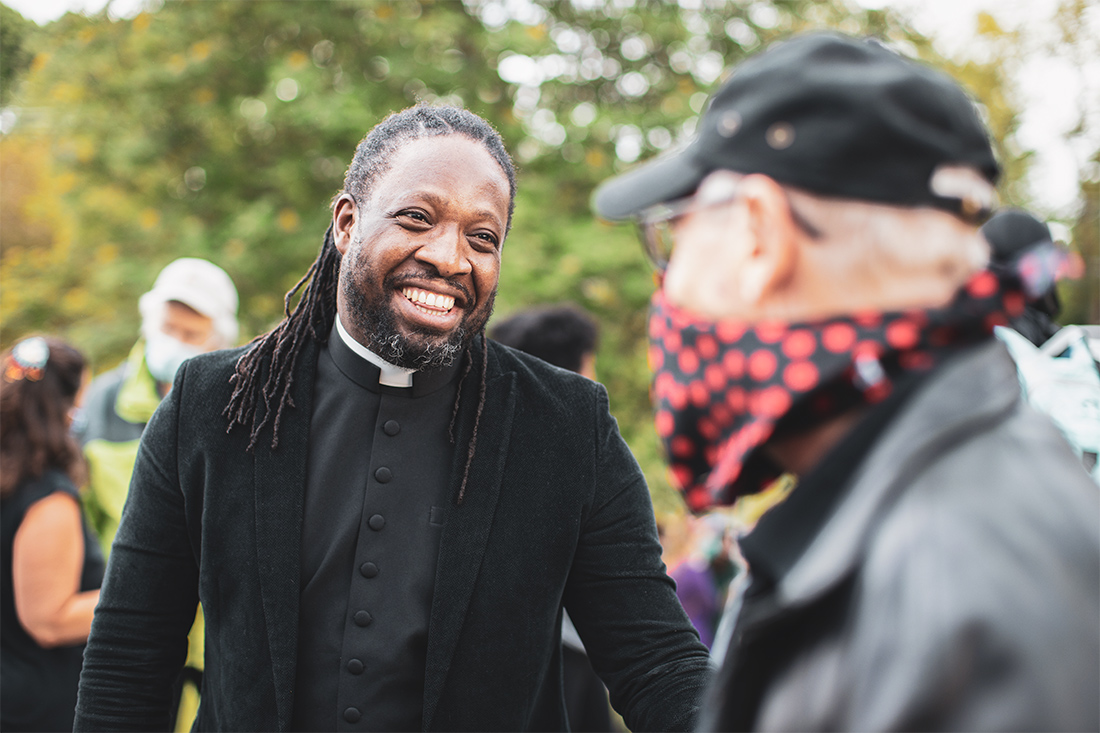A few years after Reverend Andre Bennett immigrated to the United States from Jamaica, he was pulled over by police on Route 128. He was in the left lane, on his way to bring his wife some lunch at her job in Reading, and it took him a moment to safely come to a stop on the side of the road.
As soon as he did, Bennett recalls, the police officer stormed at the car, yelling and using obscenities, demanding to know why it had taken so long to pull over. He called Bennett “boy” and asked Bennett’s daughter if she was sure he was her father. Finally, the officer wrote Bennett a $365 ticket. The offense? Doing 60 in a 55 zone.
Bennett appealed the ticket and it was overturned, but his memories of the angry officer lingered. “It was the interaction that stayed with me,” says Bennett, today the youth pastor at Zion Baptist Church in Lynn. “At that point, something kind of clicked.”
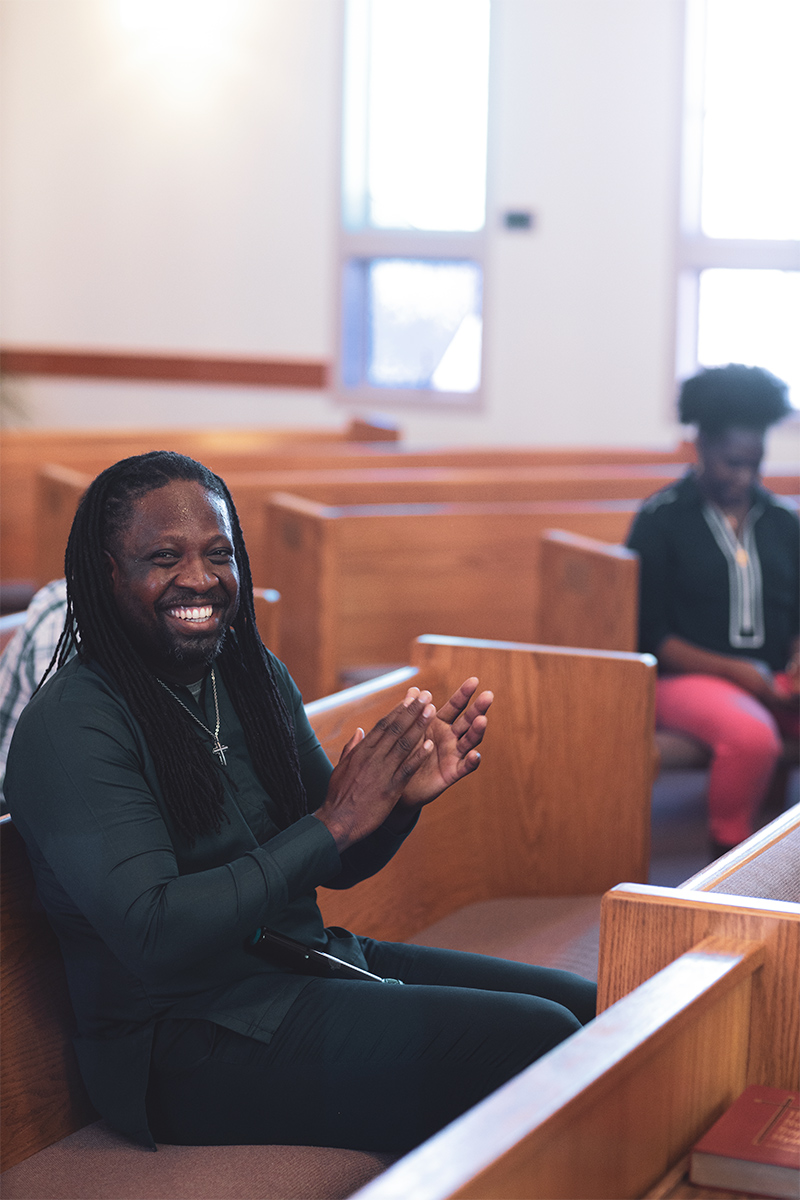
Bennett could only conclude that it was the color of his skin that sparked the officer’s outsized temper and the inflated fine for a minor infraction, a dynamic he’d never experienced in predominantly Black Jamaica. In the years since the eye-opening encounter, Bennett has turned that realization into a mission as the de facto leader of the Black Lives Matter Movement on the North Shore.
Getting to the place he is today was a process of reflection and evolution, Bennett says. When he first arrived in the United States, he believed racism was all but extinct, and that Black people only needed to make the right choices to succeed.
Over time, however, Bennett had more experiences that made him question this conviction. There was the time a Black member of his church was jailed for a weekend on a baseless shoplifting charge. And the time a neighbor he thought was friendly called the police on him in his own apartment complex and he ended up thrown to the ground while his son watched, terrified.
Bennett started to understand what being Black in America really meant, he says. Even in Massachusetts, a state that prides itself on its progressive attitudes, racism and discrimination are very real, he says.
“You’re looked at differently, you’re treated differently, you’re trailed at the malls,” he says. “People clutch their purses when you enter a room.”
He became involved with the Essex County Community Organization, a multifaith social justice network, in 2013, leading implicit bias training to help participants become aware of and push back against the subtle ways racism has infiltrated their own attitudes and behaviors. Still, he resisted actively protesting, he says, because he didn’t want his children to see taking to the streets as the best way to resolve problems.
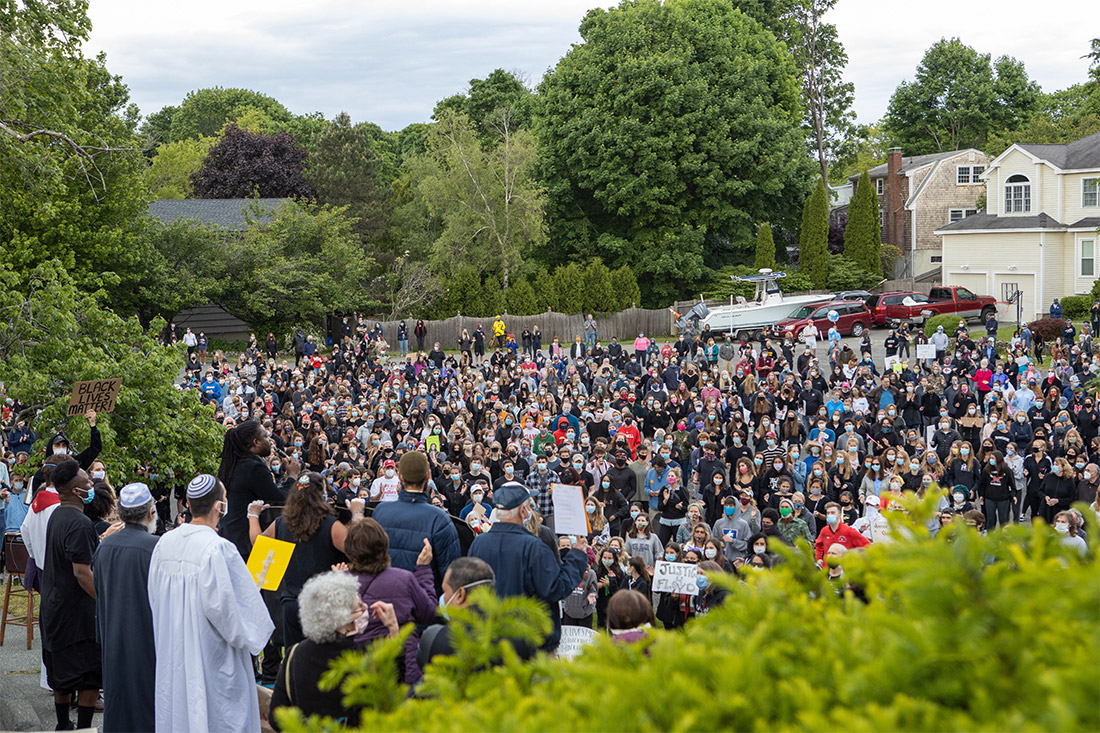
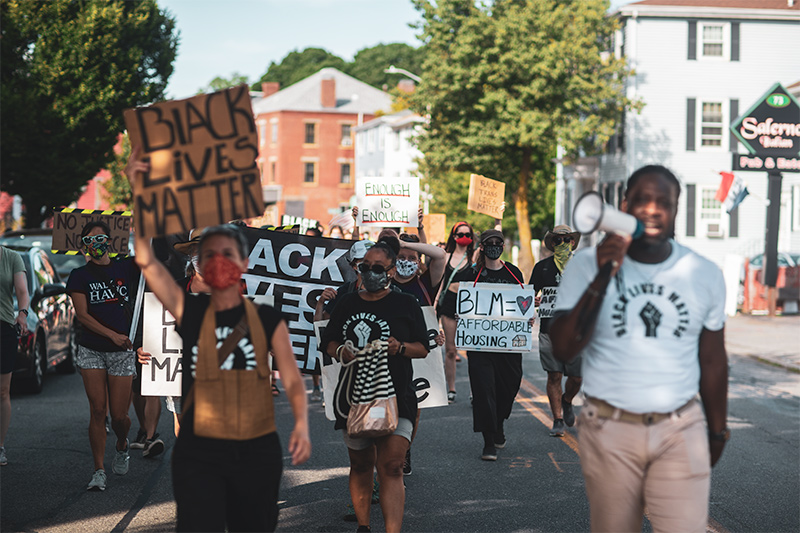
It is fitting, then, that it was also concern for his children that eventually propelled Bennett to action. In 2015, a grand jury in Cleveland declined to indict the police officer who shot and killed Tamir Rice, a 12-year-old boy playing with a toy gun in a park. Listening to the news on the radio, Bennett’s son told his father, in tears, “They should just tell us being Black is criminal—that way we won’t look for anything.”
“I broke,” Bennett says. “Something inside me that Saturday shattered. For him to feel like this country doesn’t value him, that his color sends a criminal message, I couldn’t live with that.”
He decided it was time to throw himself into the struggle. Today, he doesn’t shy away from vocal, public action on behalf of his cause. He does speaking engagements, records videos, and organizes and speaks at demonstrations. In June, he led a rally against systemic racism that wound through several North Shore towns, ending in front of the Swampscott home of Governor Charlie Baker.
He’s also started expanding his work to include advocacy for the LGBTQ+, immigrant, and low-income communities. “I stand with and I speak up for marginalized communities,” he says.
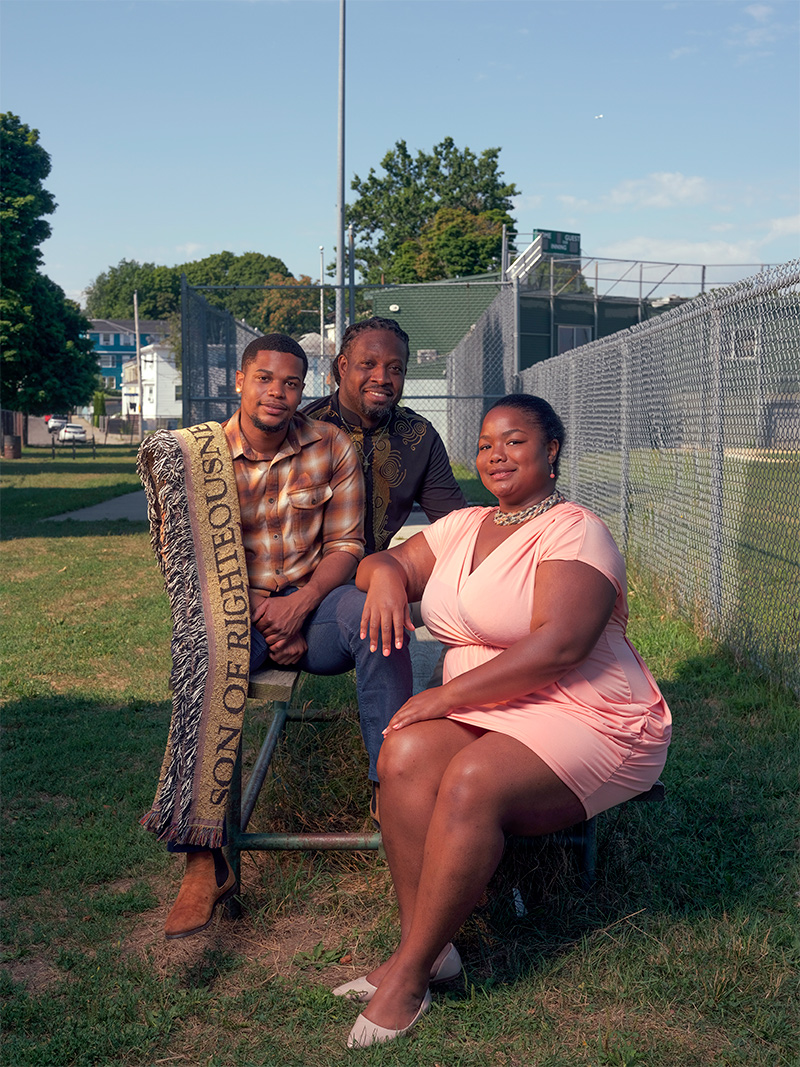
Even as he dedicates himself to fighting racial and social injustice, however, Bennett is reluctant to take on the label of “activist.” He takes the word seriously and reserves it for the most influential figures, people like Martin Luther King Jr. and Malcolm X.
“I don’t know if I can rank myself among those great community warriors,” he says.
Despite the tension often reported between the antiracism movement and law enforcement—and his own objectionable encounters—Bennett is not anti-police. His mother was a police officer in Jamaica, so he grew up with a strong sense of respect for law enforcement. He knows many members of the force in Lynn and has an ongoing, productive relationship with Beverly police chief John LeLacheur, who appreciates his openness to conversation.
“He’s willing to listen and he’s also taught me a few things,” LeLacheur says. “It’s important to keep those relationships going.”
While discussion remains important, however, Bennett is clear now that it is not enough for him. “It is not OK for me to just stand in the pulpit and denounce this. It’s about what it’s going to take to make sure we are included in the freedom, the liberty, the justice for all,” he says. “How do we become part of the all?”
For more information, visit zionbaptistlynnma.org.

